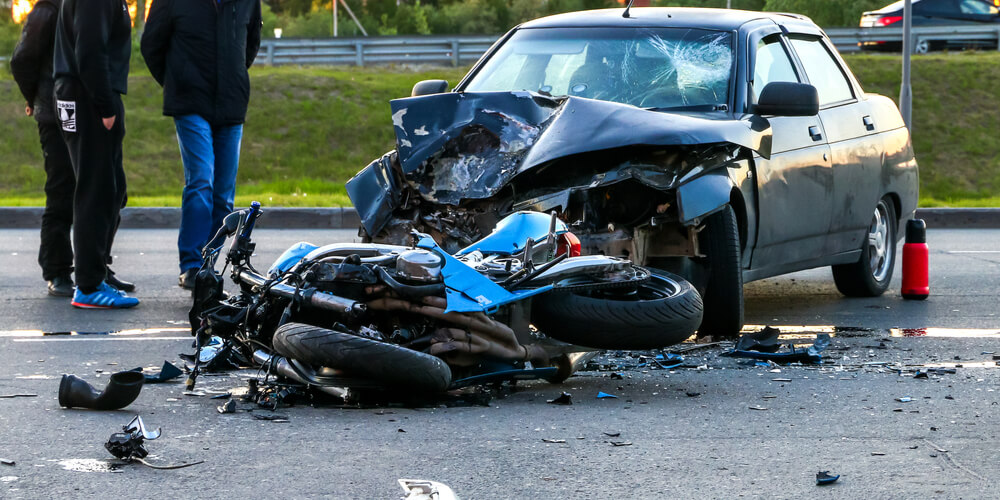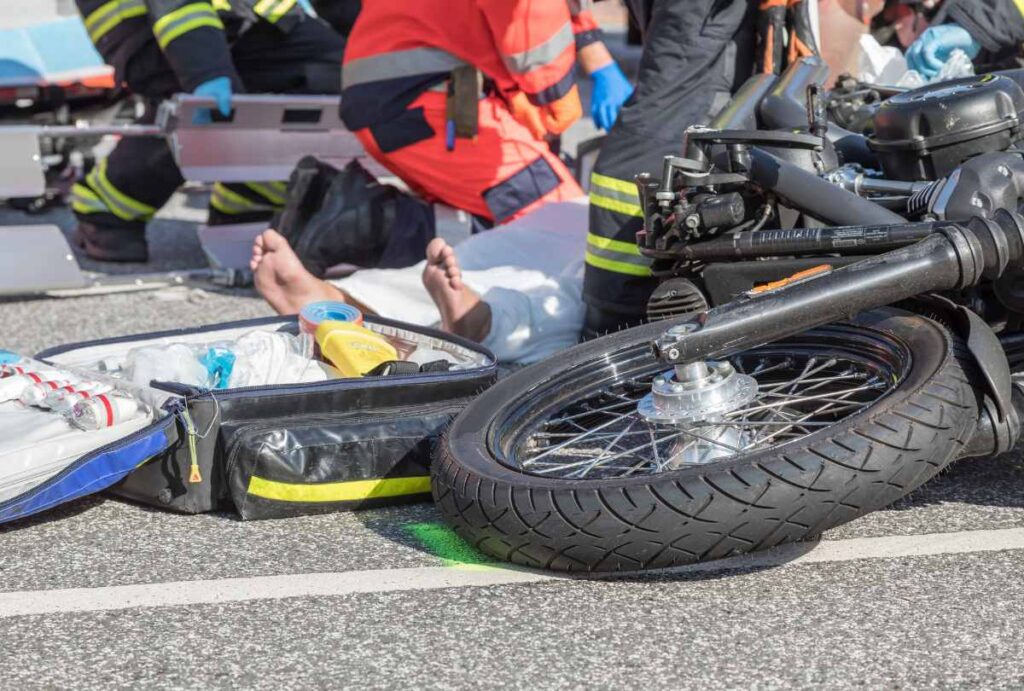
When you go down on your bike, the aftermath can be painful, confusing, and frustrating. Motorcyclists make up a large percentage of fatal crashes, which is why you need to act fast after an accident.
Here’s what you need to do.
Table of Contents
1. Seek medical care
Most people won’t hesitate to see a doctor for major injuries, but minor injuries are sometimes ignored. No matter how minor your injuries may seem, it’s crucial to seek medical care right away for two reasons. One, you might not realize you’re injured. And two, not getting seen by a doctor will prevent you from getting compensated.
Insurance companies calculate claim value based on medical bills, and if you don’t have any medical bills, you’re unlikely to get compensated. Not seeing a doctor also raises suspicion that you were even injured in a motorcycle accident. Even if your injuries seem like they’ll heal on their own, see a doctor right away to establish that your injuries were caused by the crash.
2. Call the police
In most states, you’re legally required to call the police after an accident involving an injury. Call as soon as possible so they can come out and document the scene and take statements from witnesses. You’ll need a police report to win financial compensation, so don’t skip this step.
When talking to the responding officer, stick to the facts and don’t get emotional. If you’re not sure about something, then say you don’t know. Before they leave, ask how you can get a copy of the report. Write down the officer’s name and badge number, and get the number where you can reach them.
3. Gather information at the scene

Source: prolaw1.com
If it’s safe and you’re able, start collecting information while you’re at the scene. These details will be helpful for your claim or lawsuit if you take further legal action. Take photos and video of your bike, the other vehicles involved, license plates, road conditions, traffic signs, and your injuries. Don’t move your bike before police arrive unless it’s in a dangerous spot. If you need to move it, take photos first.
Ask for witness contact information in case you need their testimony later. If possible, ask them to write a statement while still at the scene since memories fade fast.
4. Call a motorcycle accident attorney
Once you’ve gotten medical care, call an attorney right away. They’ll advise you on the best path forward, which might be negotiating a settlement with insurance or filing a lawsuit. It all depends on your state’s laws, whether the other driver has insurance, and the severity of your injuries.
A lawyer can help you understand your rights and will protect you from accepting a lowball settlement offer from the at-fault party’s insurance company. If you don’t have a lawyer, you might be tempted to take whatever you can get when it’s offered, but initial settlements are almost always too low. If you accept a low settlement, you won’t get enough compensation to cover ongoing care, lost wages, and other long-term effects of your injuries.
5. Follow up on your medical appointments
If your medical providers recommend follow-up appointments, don’t put these off or ignore them. Make sure you go to every appointment, whether it’s a checkup, test, lab, or a specialist visit. When calculating your claim, the insurance company will look at whether or not you followed your doctor’s instructions for recovery and care. Not attending follow-ups will raise a red flag.
6. Notify your insurance company

Source: davidchristensenlaw.com
Most motorcycle insurance policies require you to report accidents fast, sometimes within a day or two. Contact your insurance company and tell them about the accident but be mindful about what you say. Only share the basic details like the date, time, location, vehicles involved, and your injuries. Avoid speculation and don’t give a recorded statement without talking to a lawyer first. You aren’t obligated to provide a recorded statement; if you give one, it will be used to discredit your claim.
7. Get copies of your medical records
Whether you settle with the insurance company or file a lawsuit, you’ll need copies of your medical records to prove your claim. Get your records as soon as possible from every provider you’ve seen, including the ER and lab tests. Get copies of all prescriptions, treatment plans, and even doctors’ notes, if possible.
Focus on what you can control
You can’t control every aspect of life after a crash, so focus on what you can control. Prioritize your recovery and lean on a lawyer for help recovering compensation. Every step you take will strengthen your ability to move forward with your life.







